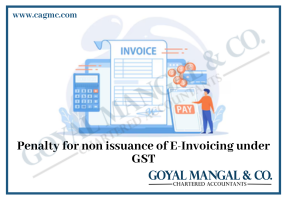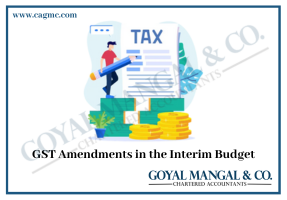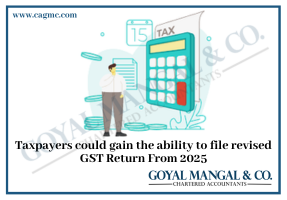 Many multinational companies (MNCs) have a practice of seconding/representing one or more of their employees to sister companies in their country and abroad. Such transactions have come under the scrutiny of the ministry where the service tax requirement has been increased. Let us discuss the GST on the Secondment/Deputation of Expats.
Many multinational companies (MNCs) have a practice of seconding/representing one or more of their employees to sister companies in their country and abroad. Such transactions have come under the scrutiny of the ministry where the service tax requirement has been increased. Let us discuss the GST on the Secondment/Deputation of Expats.
|
Table of Contents |
Facts of the case
The respondent i.e. Northern Operating Systems Pvt. Ltd. (assessee), contracted with its overseas group entities to provide back-office and information technology support services. According to the contract, the overseas entity was obliged to send its employees (the seconded employees) to the assessee according to the assessee’s requirements. The seconded employees were required to act under the instructions and control of the assessee. However, the salary, bonuses/incentives, social security, and social benefits of the seconded employees were paid to them by the overseas group entity. The assessee subsequently reimbursed these expenses to its overseas entity.
The liability to pay service tax on these payments to the assessee was challenged in the Supreme Court (SC).
Provisions considered by SC
Before 2012, the services of a “recruitment or supply agency” were specifically defined as a taxable service under the Finance Act 1994. Then, with the introduction of the negative list regime from 01.07.2012, the definition of ‘service’ was extended to include any activity performed by one person for another (except for specified exceptions).
From the definition of service according to Section 65B (44) (b) of the Finance Act of 1994, however, services provided by the employee to the employer were excluded. This exclusion of the services of the employee by the employer from the tax net amount continues even under the GST Regime under Item 1 of Schedule III of the Central Goods and Services Tax Act, 2017.
The framework of the analysis adopted by the Supervisory Committee for ascertaining the eligibility of the above allowances for service tax was to identify the “genuine” employer of the seconded employees. If the assessee qualifies as a ‘genuine’ employer, no tax liability would arise on the assessee. However, if the overseas group entity were to be regarded as the “real” employer of the seconded workers, this would amount to a provision of services assessed by the overseas group entity.
Judgment
Since it was not possible to establish any singular determinative test for concluding an employer-employee relationship, the Supervisory Committee decided that such an examination must be based on many factors. Adopting a ‘substance over form’ approach to identifying the ‘genuine’ employer, the SC conducted a detailed review of –
- the framework service contracts between the assessee and the overseas entities;
- temporary assignment agreements; and
- Letters of understanding issued to seconded employees assessed.
Based on this analysis, it was concluded that the Foreign Group Entities were the “real” employers of the Seconded employees in light of the following factors.
Factors responsible for the decision
- Lien on the employment of Seconded employees with a foreign entity- the supervisory committee noted that the seconded employees continued to be on the foreign entity’s payroll. Furthermore, all payments of wages and social benefits were paid by a foreign entity. While operational and functional control was carried out by the assessee for the seconded employees only for the duration of the secondment, this control was necessary to ensure the fulfillment of the duties entrusted to them. But it was only about the face. The arrangement was therefore a “contract for the provision of services” and not a “contract of services”.
- Specialized nature of the services – The Court noted the “fundamental fact” that the core business of the overseas group entities was the provision of contracts that required highly trained and qualified personnel. Thus, seconded employees possessing specific skills were assigned to the assessee which is also evident from the nature of benefits and salary paid. Thus, it was found that the seconded employees were assigned to the assessee to utilize their specific skills.
- Repatriation back to the overseas entity– The Memorandum of Understanding between the assessee and the seconded employees nowhere stated that the seconded employees will be treated as employees of the assessee after the period of assignment. Furthermore, the assessee could not terminate the employment of the seconded employees after the end of the assignment period; Seconded employees had to be repatriated to their foreign employer and could be seconded elsewhere. Thus, the assessee was not entitled to terminate the employment of seconded employees or even to adjust their working conditions unfavorably.
- Salary/Allowances in Foreign Currency– The fact that the salary package, allowances, etc. were all denominated in foreign currency and separate allowances were provided for working in India further supported that the seconded employees were employees of the foreign entity.
Thus, it was held that the assessee was the recipient of recruitment and labor supply services provided by the overseas entity to the employees seconded by it to the assessee for the duration of their deputation.
Implications under GST
Although the decision was under earlier law, there would also be far-reaching implications for GST as the practice of posting/deputation continues. When considering such temporary assignment transactions as labor supply services obtained from a foreign group entity, it is important to understand the place of supply to determine the applicability of GST. For this purpose Section, 13(3) of the IGST Act which is a residual clause would be used as there is no specific clause relating to labor supply services. So the place of delivery would be India (which is the location of the Indian entity).
Further, since the place of supply is in India and the place of supplier is outside India, it would amount to ‘importation of services’ and would be liable to GST under the reverse charge mechanism. (Notification No. 10/2017-Central Tax (Rate) dated 28 June 2017).
In addition to the above, under the principle of the decision of the Supreme Court, if the arrangement of the transaction indicates the existence of the assignment of employees, GST can be claimed. Further, if it can be shown that there is consideration for the Indian entity (which is the recipient of the expertise of such ex-pats), the Department could claim tax on the same.
Final words
The overall effect of the contracts points to the fact that the foreign company has highly qualified employees who are entitled to a certain wage structure and also to social benefits. Of their expertise and specialization, these employees are seconded (deputized) to the Indian entity to utilize their skills.
While the seconded employee is under the control and direction of the Indian entity for the duration of the assignment, the fact remains that he is on the payroll of his foreign employer. Deputation is part of the global policy of a foreign employer that temporarily lends its services. At the end of their posting period, they must be under the global policy.
Accordingly, the SC held that an Indian entity was a service recipient of a foreign company that can be said to have rendered a labor supply service or a taxable service.







